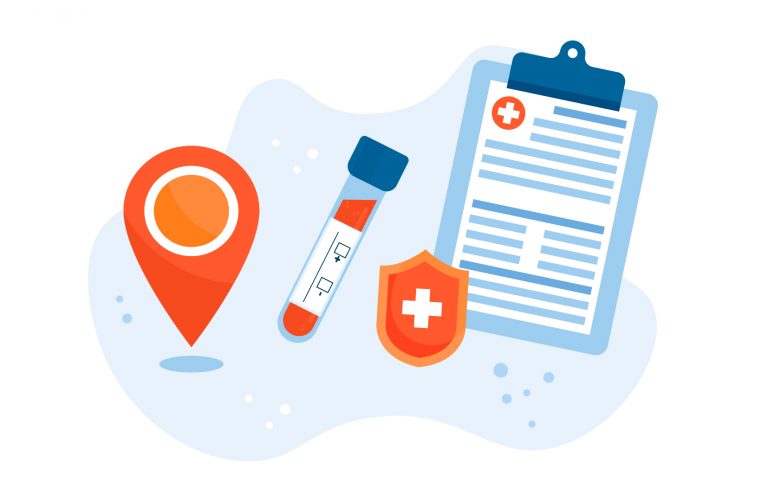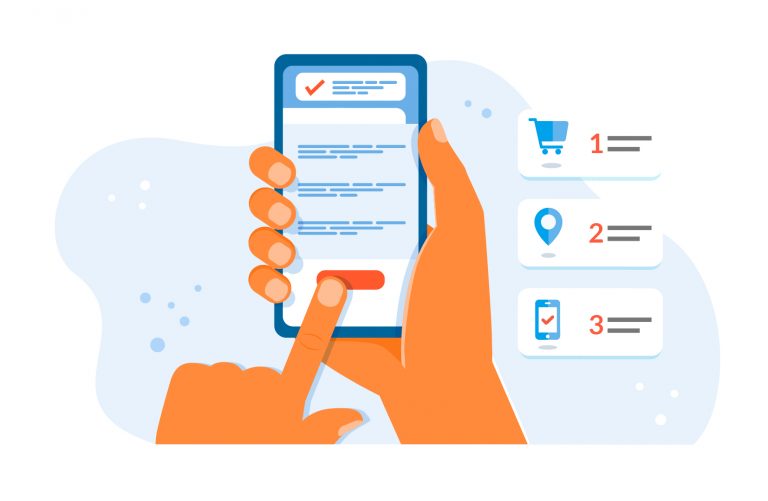Gonorrhea tests are used to identify the STD of the same name. They are usually performed at a healthcare clinic or at a healthcare provider’s facility, although there are some at-home options available. However, this process of scheduling usually involves calling and verbally asking for a gonorrhea test, and undergoing uncomfortable testing methods.
At Priority STD Testing, you can get tested for gonorrhea comfortably and discreetly. When you schedule your test through Priority STD, you’ll enjoy the privacy of scheduling online and non-invasive tests. No painful swabbing! Just a quick and simple urine test.

ORDER
Purchase your lab order privately online or over the phone. The process is simple, quick, and secure. Our care counselors are available to answer any questions you may have or help schedule testing.
VISIT
Get tested same day at any of our 4,000 private locations, no appointment is needed after ordering. Our collection facilities are discreet, no other patients will know the reason for your visit.
RESULTS
Our test results are lightning fast and typically process in just 24-72 hours. You can access your results online through a secure patient login, or by calling one of our care counselors. Treatment options are available as well.
The easiest way to order gonorrhea testing.
How Gonorrhea Testing Works
A gonorrhea test usually consists of a urine test, but in some cases could require swabbing of the urethra in men and the cervix in women to confirm the presence of the infection.1
We know that you’re already uncomfortable enough, which is why all of our STD tests are non-invasive. Just a simple urine test is required!
Once your test is performed, you’ll receive test results in just 24-72 hours. If you test positive, you are provided with all of the information and support resources you need to start treatment.
Why Order Gonorrhea Testing
With over 600,000 cases reported every year, gonorrhea is the 2nd most common STD, especially if you’re between 15-25 years of age. Women are slightly more likely to contract the infection, but both men and women are susceptible.
Gonorrhea can be present in multiple parts of the body due to how infectious it is. It can be spread through vaginal, oral and anal sex and can be present in the vagina, penis, eyes, throat, and mouth.
A gonorrhea infection doesn’t always show symptoms but can lead to a plethora of other life-threatening medical conditions,2 such as pelvic inflammatory disease (PID) or infertility if left untreated. A test is the only way to determine if you are infected.
When to Get Tested
Sexually active men and women under 25 years of age should get tested for gonorrhea every year.
If you’re concerned you’ve been infected, it is recommended to wait 4 days after you suspect you’ve contracted the infection. Abstaining from any sexual activity in the meantime is recommended before getting a gonorrhea test. If you’re pregnant, it’s a good idea to get tested for gonorrhea within your first and third trimesters.
Gonorrhea Treatment
Luckily, gonorrhea is curable! A round of antibiotics usually does the trick to clear the infection up, letting you get back to your life.
That being said, it’s critical that you finish the full antibiotic treatment to avoid reinfection or to develop a drug-resistant strain of gonorrhea that does not respond to treatment.3 It’s just as important to abstain from sexual activity during treatment to avoid spreading the infection further. At Priority STD, we offer hassle-free gonorrhea treatment. For $65 we will provide a prescription for treatment that can be picked up at a pharmacy near you.
Although gonorrhea is treatable, a possible diagnosis can be scary. This is why Priority STD makes it simple for you to get tested without the hurdles.
Using our easy-to-use online schedule platform, set up a test at a local private collection facility and get results within 72 hours. All that’s needed is a simple urine test—no swabbing required! After your test, we don’t leave you high and dry. Our care counselors are available at any time to give you the resources and support you need.

Our Tests are FDA Approved and Performed in CLIA Certified Labs
Twin STD Panel
$119- Chlamydia
- Gonorrhea
10-Panel STD Test
Most Popular $198- Chlamydia
- Gonorrhea
- Hepatitis B
- Hepatitis C
- Syphilis
- Herpes 1
- Herpes 2
- HIV 1 Ab
- HIV 1 Ag
- HIV 2 Ab
Individual STD Tests
- Chlamydia - $89
- Gonorrhea - $89
- Hepatitis B - $59
- Hepatitis C - $59
- Herpes I/II - $99
- HIV 1/2 - $79
- Syphilis - $69
- Trichomoniasis - $109
- Mycoplasma Genitalium - $139
- HIV RNA Early Detection - $169
How do I know what type of test I should take?
If at any point you need assistance, call us at 1-888-211-2365 and one of our care counselors will assist you with any questions you may have regarding your testing options. We offer both customized tests and comprehensive panels to fit your testing needs.
My partner is positive, but I tested negative. How is this possible?
It is possible that couples testing can result in one partner receiving a positive result and the other a negative result. This can be due to low exposure to the STD/STI or the incubation period unique to each. The incubation period is the time frame between exposure and symptoms when the bacteria or virus is undetectable by lab tests. Due to this, it is important to be mindful of the incubation period of the particular illness which you are testing for and when to schedule your test. This will achieve the most accurate results.
Men and women also have different levels of risk for transmission--depending on the illness. According to the Centers for Disease Control (CDC), women are more at risk for contracting an STD in general. This is due to the thinner membrane and moist environment of the vagina, making it easier to breed infection. Meanwhile, the penis does not have such delicate membranes. However, over 80% of all the newly reported HIV cases within the US in 2017 were among men. This statistic is even higher for HIV cases that were transmitted via male-to-male sexual contact. For this reason, keeping the risks for your demographic in mind is a great way to remain proactive about sexual health.
Some physicians may prescribe the medication for the ailment, despite negative test results. They may also recommend later testing to avoid the incubation period. This is especially true for infections such as chlamydia or gonorrhea that are easily treated but have serious consequences if ignored. For example, chlamydia and gonorrhea are the most common root-causes of pelvic inflammatory disease (PID). PID can cause multiple complications including infertility and chronic pelvic pain.
Do I need to fast before getting tested?
No fasting is required for any type of test we offer. If you are testing for chlamydia, gonorrhea, or trichomoniasis, please ensure that you have not urinated for at least one hour prior to visiting the testing center.
Can chlamydia symptoms come and go?
Yes, they most certainly can. Once you’ve been infected, you may notice symptoms come and go somewhat sporadically until treatment is administered. And you may go months or longer after contracting before symptoms are present. Or symptoms may never develop at all. Either way, if you have chlamydia, you are at risk of passing it along to a sexual partner whether or not you are displaying symptoms. While symptoms may subside on their own, make no mistake, the infection will not. You’ll want to get tested and seek treatment as soon as you can before the infection worsens.
Sources
- Staff, Healthwise. 2021. “Gonorrhea Test”. Cham.Org. https://www.cham.org/HealthwiseArticle.aspx?id=hw4905.
- “Detailed STD Facts – Gonorrhea”. 2021. Cdc.Gov. https://www.cdc.gov/gonorrhea/about/.
- “Basic Information About ARG – STD Information From CDC”. 2021. Cdc.Gov. https://www.cdc.gov/gonorrhea/about/.
